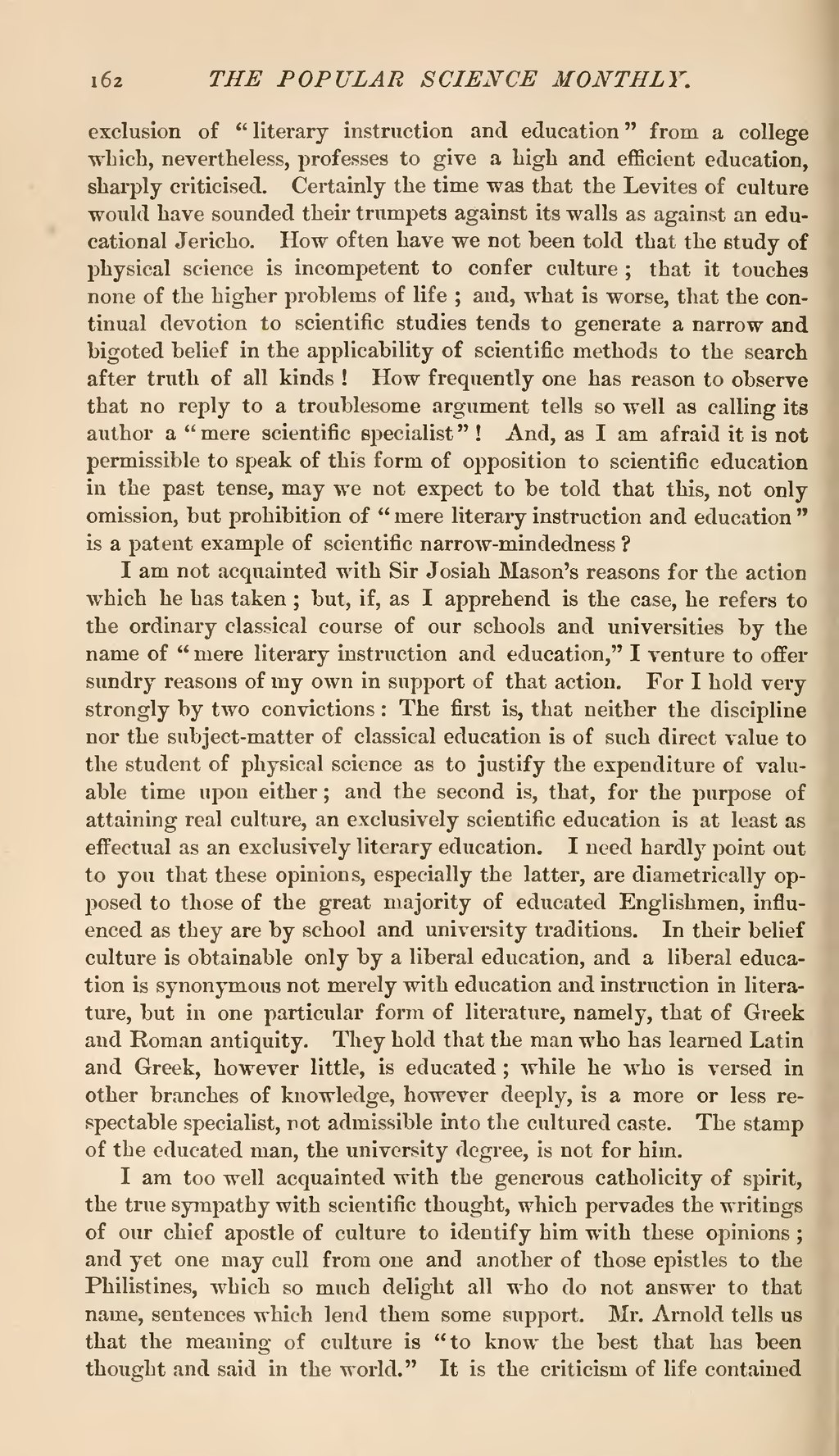exclusion of "literary instruction and education" from a college which, nevertheless, professes to give a high and efficient education, sharply criticised. Certainly the time was that the Levites of culture would have sounded their trumpets against its walls as against an educational Jericho. How often have we not been told that the study of physical science is incompetent to confer culture; that it touches none of the higher problems of life; and, what is worse, that the continual devotion to scientific studies tends to generate a narrow and bigoted belief in the applicability of scientific methods to the search after truth of all kinds! How frequently one has reason to observe that no reply to a troublesome argument tells so well as calling its author a "mere scientific specialist"! And, as I am afraid it is not permissible to speak of this form of opposition to scientific education in the past tense, may we not expect to be told that this, not only omission, but prohibition of "mere literary instruction and education" is a patent example of scientific narrow-mindedness?
I am not acquainted with Sir Josiah Mason's reasons for the action which he has taken; but, if, as I apprehend is the case, he refers to the ordinary classical course of our schools and universities by the name of "mere literary instruction and education," I venture to offer sundry reasons of my own in support of that action. For I hold very strongly by two convictions: The first is, that neither the discipline nor the subject-matter of classical education is of such direct value to the student of physical science as to justify the expenditure of valuable time upon either; and the second is, that, for the purpose of attaining real culture, an exclusively scientific education is at least as i effectual as an exclusively literary education. I need hardly point out to you that these opinions, especially the latter, are diametrically opposed to those of the great majority of educated Englishmen, influenced as they are by school and university traditions. In their belief culture is obtainable only by a liberal education, and a liberal education is synonymous not merely with education and instruction in literature, but in one particular form of literature, namely, that of Greek and Roman antiquity. They hold that the man who has learned Latin and Greek, however little, is educated; while he who is versed in: other branches of knowledge, however deeply, is a more or less respectable specialist, rot admissible into the cultured caste. The stamp of the educated man, the university degree, is not for him.
I am too well acquainted with the generous catholicity of spirit, the true sympathy with scientific thought, which pervades the writings of our chief apostle of culture to identify him with these opinions; and yet one may cull from one and another of those epistles to the Philistines, which so much delight all who do not answer to that name, sentences which lend them some support. Mr. Arnold tells us that the meaning of culture is "to know the best that has been thought and said in the world." It is the criticism of life contained
